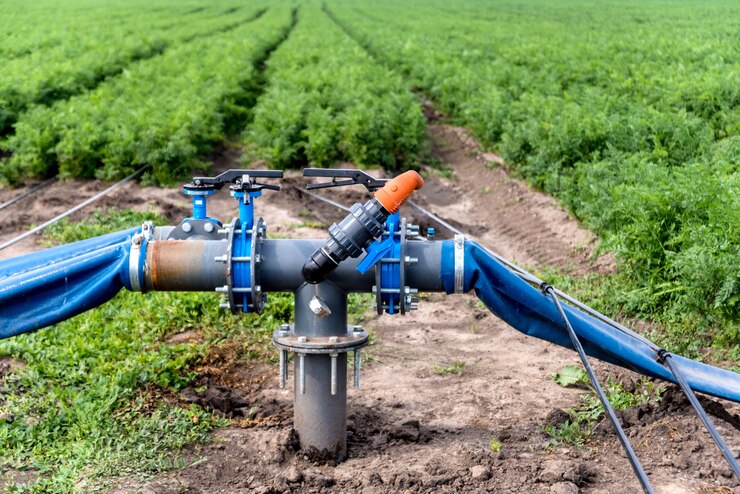Introduction to Precision Irrigation and Pump Industry
In recent years, the agricultural sector has seen a remarkable evolution, largely due to advancements in technology. Among the most impactful innovations is precision irrigation and pump systems, which have revolutionized how farmers manage water resources. This blog aims to explore the intricacies of this industry, focusing on ownership patterns, technological advancements, and the future of precision irrigation. Whether you’re an investor, farmer, or simply curious about who owns precision irrigation and pump companies, this guide provides a comprehensive overview tailored to your interests.
Precision irrigation involves the precise application of water to crops, minimizing waste and ensuring optimal growth conditions. This approach is critical in regions with limited water resources, where efficient water management can significantly impact agricultural productivity. Meanwhile, pump systems are integral to transporting water across vast agricultural landscapes, making them a crucial component of modern farming operations.
Understanding the structure and ownership of precision irrigation and pump companies is essential for stakeholders looking to invest or partner with these businesses. This blog will also highlight the challenges and opportunities within the industry, offering insights into successful strategies and future trends that promise to shape its landscape.
The Role of Technology in Modern Irrigation and Pump Systems
Technology plays a pivotal role in the evolution of irrigation and pump systems. With the advent of smart sensors and IoT (Internet of Things) technology, farmers can now monitor soil moisture levels and adjust irrigation schedules in real-time. This level of precision not only conserves water but also enhances crop yields, catering to the growing global demand for food.
Smart irrigation systems utilize data analytics to predict weather patterns and optimize water usage. By integrating artificial intelligence, these systems can learn from historical data and recommend irrigation schedules that align with environmental conditions. This innovation reduces dependency on manual labor, allowing farmers to focus on other critical aspects of their operations.
Pump systems have also benefited from technological advancements, with solar-powered pumps gaining popularity in remote or off-grid areas. These pumps harness solar energy to operate, reducing reliance on traditional power sources and lowering operational costs. Furthermore, advancements in pump design and materials have improved efficiency and durability, ensuring reliable water delivery for agricultural purposes.
Who Owns Precision Irrigation and Pump Companies? Insights into the Industry
Ownership of precision irrigation and pump companies is diverse, encompassing a range of stakeholders from individual entrepreneurs to multinational corporations. In many cases, companies are founded by individuals with a deep understanding of agricultural practices and a passion for innovation. These founders often bring a wealth of experience and expertise to the industry, helping to drive technological advancements and improve irrigation and pump systems.
Multinational companies also play a significant role in the industry, investing heavily in research and development to maintain a competitive edge. These corporations often acquire smaller, innovative companies to expand their product offerings and enhance their technological capabilities. This trend highlights the dynamic nature of the industry, where both established players and newcomers contribute to its growth and evolution.
Partnerships and collaborations are another common feature of the precision irrigation and pump sector, with companies joining forces to leverage each other’s strengths. These partnerships often involve sharing knowledge, resources, and technology, resulting in mutually beneficial outcomes for all parties involved.
Key Challenges and Opportunities for Owners in the Sector
Despite its promising potential, the precision irrigation and pump industry faces several challenges that owners must contend with. One of the primary challenges is the high cost of implementing advanced irrigation and pump systems, which can be prohibitive for small-scale farmers. To address this issue, companies must explore innovative financing models and partnerships to make these technologies more accessible.
Another challenge is the need for ongoing education and training for farmers and operators. As technology evolves, users must stay informed about the latest advancements and best practices to ensure optimal system performance. Companies can seize this opportunity by offering training programs and support services, building long-term relationships with their customers.

Regulatory and environmental factors also pose challenges for the industry, as companies must comply with various laws related to water use and conservation. These regulations can vary significantly across regions, requiring companies to adapt their strategies accordingly. However, by prioritizing sustainability and environmental stewardship, companies can position themselves as leaders in responsible water management.
Strategies for Success: Case Studies and Best Practices
Several precision irrigation and pump companies have successfully navigated the industry’s challenges by adopting innovative strategies. For example, one company partnered with local governments to offer subsidized irrigation systems to smallholder farmers, increasing accessibility while promoting sustainable agriculture.
Another company invested in research and development to create a modular irrigation system that could be easily customized to suit different crop types and field conditions. This approach allowed the company to cater to a broader customer base, ultimately driving growth and revenue.
Collaboration with educational institutions has also proven effective, with some companies partnering with universities to conduct research and develop new technologies. These partnerships facilitate knowledge exchange and innovation, ensuring that companies remain at the forefront of industry advancements.
The Future of Precision Irrigation and Pump Companies: Emerging Trends and Innovations
Looking ahead, the precision irrigation and pump industry is poised for continued growth and transformation. One emerging trend is the integration of blockchain technology, which can enhance transparency and traceability in water management. This development has the potential to revolutionize how water resources are allocated and monitored, promoting accountability and efficiency.
Another exciting innovation is the use of drones and satellite imagery to monitor crop health and optimize irrigation schedules. These technologies provide valuable insights into field conditions, enabling farmers to make data-driven decisions that improve productivity and resource efficiency.
Sustainability will remain a key focus for the industry, with companies exploring new ways to reduce their environmental impact. From developing eco-friendly materials to implementing circular economy principles, precision irrigation and pump companies have the opportunity to lead the charge toward a more sustainable future.
Conclusion – The Importance of Staying Informed and Adapting in a Dynamic Industry
The precision irrigation and pump industry is characterized by rapid technological advancements and evolving market dynamics. For stakeholders, staying informed and adaptable is crucial to navigating this complex landscape successfully. By understanding ownership patterns, recognizing challenges and opportunities, and adopting innovative strategies, industry participants can position themselves for long-term success.







































